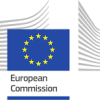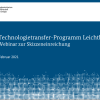
System Function of Quantum Computers
The central aim of the research is to deepen our understanding of quantum computers, to make accurate predictions about attainable system sizes, technical specifications, and the quantum algorithms they can efficiently run. There's a need to align the abstract realm of quantum information theory with the actual characteristics and limitations of real-world technical setups.
From a theoretical perspective, we aim to gain precise knowledge about the operational states of quantum processors during tasks like quantum simulation, machine learning, and optimization, focusing on controlling fragile correlated quantum states. Technically, it is essential to provide a detailed inventory of existing setups and their constraints and highlight insurmountable technical challenges, such as noise or losses, and understand how these affect algorithm performance. Experimentation and theory must together develop strategies to mitigate the fragility of quantum states, considering scalability to perform the tasks despite limitations. For NISQ (Noisy Intermediate-Scale Quantum) generations, optimizing resources is critical due to limited error correction capabilities, which is vital to surpass the threshold of quantum advantage for practical tasks.
Research and development projects should focus on:
Module A – System Function:
- Focus on NISQ devices.
- Understand operational states of quantum computers to derive minimum requirements for practical quantum processors, including coherence of large correlated states.
- Consider all relevant disturbances, such as noise, crosstalk, and drift.
- Explore error mitigation or channeling in NISQ systems, with experimental verification using available quantum processors.
- Develop operational modes for NISQ systems to manage inherent shortcomings.
Module B – Benchmarking:
- Provide reliable benchmarks indicating the current state of quantum computers regarding practical usability.
- Use benchmarks as IT-based system analysis tools for detailed characterization of experimental setups and complex correlated states.
- Ensure benchmarks have the necessary complexity and are closely developed by users, theorists, and experimentalists, prioritizing suitability over simplicity.
Projects must have clear objectives for success evaluation, be collaborative between theoretical and experimental groups, and can include purely theoretical consortiums for benchmarking. They should bring together key national groups from different physical platforms and include industrial users. Benchmarks should be coordinated independently from institutions leading demonstration projects. Project duration is typically 36 months.
Read the full call for proposals here (in German Language).
The call is based on a two stage submission scheme. Submission deadline for 1st stage (15 page short proposal) is 31. January 2024






System Function of Quantum Computers 0 reviews
Login to Write Your ReviewThere are no reviews yet.